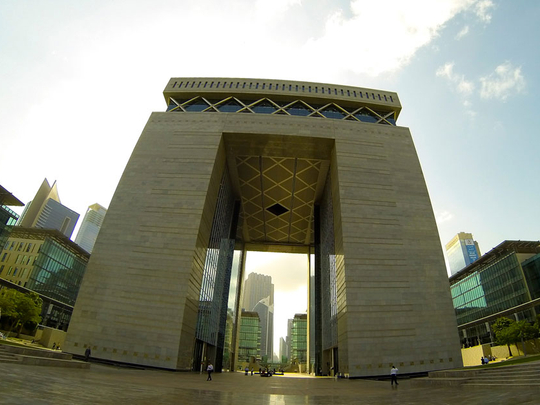
Dubai: The problems at Emirates REIT are escalating after a group of shareholders approached the regulator for an investigation into the valuations done by the real estate fund on its investment properties.
They also want Dubai Financial Services Regulator to look into the fund’s operating expenses since April 2014, which was when Emirates REIT listed on Nasdaq Dubai.
Shareholder interests would be served only through an “independent valuation” of Emirates REIT’s assets, the letter states. At the same time, there should be no interference by the fund’s manager – Equitativa - in the process to avoid bias.
“We request that such steps be taken as a matter of some urgency,” the shareholders’ note says.
“Pending a full investigation of the manager’s conduct in respect of the REIT, we request a freeze on all management fees in respect of the REIT’s non-performing (i.e., non-leased) assets, comprising approximately 30-40 per cent of the fund.”
The shareholders have raised the ante further by stating the intent to “fully and expressly reserve all rights, including but not limited to our rights to remove the manager and/or bring claims against it under all applicable laws and rules.
“We write to you regarding serious and substantiated concerns we have about the REIT and its manager Equitativa (Dubai) Ltd.. Regrettably, evidence suggests that the Manager has been misrepresenting to investors’ and the market the value of the REIT’s assets and is breaching its fiduciary duties as manager of the REIT.”
In a statement, a spokesperson for Emirates REIT said: “The Emirates REIT portfolio is valued every quarter by third-party valuers - Asteco and CBRE. Furthermore, they are audited on a yearly basis by Deloitte, the REIT's independent auditor.
"Performing assets require minimal input or active management, they operate quietly in the background without any cause for concern. On the other hand, assets that fail to pay their rent or sit empty, require a lot of resource and investment to find solutions, tenants and recover money. If management fees are not charged, the fund will not have the means required to turn such assets around.”
Problems compounded
In recent weeks Emirates REIT has been in constant spotlight for multiple reasons. Its financials have are under stress as the softness in the property market was compounded by the COVID-19 outbreak.
But it doesn’t end there. Late last month, the fund’s manager, Equitativa, approached DIFC Courts to look into recent suspicious trades involving its shares.
And in May, the Equitativa CEO, Sylvain Vieujot, issued a strongly worded note to shareholders: “Emirates REIT is aware that there are several parties engaging in an aggressive campaign of negative stories and false rumours, both online and offline. We believe this campaign is seeking to undermine investor confidence in the fund manager and negatively influence the REIT share value.”
Shareholders’ ire
But, clearly, some of the shareholders are not mollified. In the letter to DFSA, they point to the losses of around 75 per cent in the fund’s market value since April 2014.
“That equates to annualized rate of return of close to minus 10.3 per cent,” the letter adds. “This is completely inconsistent with what should be a low risk asset class, where underlying investors will typically be looking for capital preservation and some income.
“We have undertaken our own review and analysis. Based on this review, analysis and interaction, it is apparent that the irregular and poor performance of the REIT is related to (at least) the following:
• The Manager (Equitativa) is charging excessive management fees;
• Conflicts of interest exist between the Manager and the shareholders because of the management fee structure;
• The management fee structure and the conflicts of interest are driving the Manager to misrepresent the value of the REIT’s underlying assets; and
• The Manager, in addition to the above, by various acts and omissions, including a lack of required transparency and proper disclosures, is managing the REIT negligently and in breach of its fiduciary duties.
On the shareholders' concerns about its management fees, Emirates REIT said: “Emirates REIT is not just a buy and sell property fund. It is a multi-faceted REIT that buys prime properties with the purpose of repositioning them, develops new office and retail concepts as well as new build-to-suit properties.
"The REIT continually integrates more services within its scope of work, taking on more responsibility and increasing the financial costs of running the fund. While this may come with a higher upside, there are also more challenges that require much more management, resource and investment than passively managed funds, which are more commonplace in the region."
* Emirates REIT listed on Nasdaq Dubai in April 2014. The REIT now owns eleven commercial properties in Dubai, with a total net leasable area of 2.4 million square feet.








